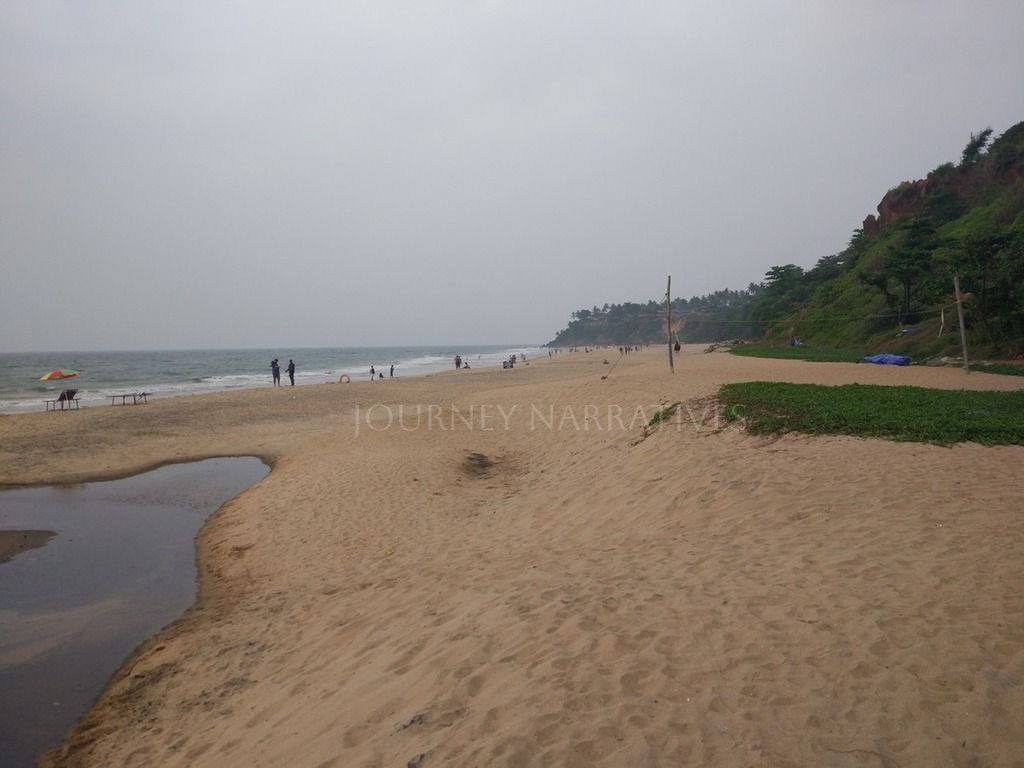India is home to a stunning array of beaches that not only offer picturesque views but also provide various levels of safety and environmental standards. One of the crucial aspects that make a beach safe and inviting for tourists is its flag status, which ranges from blue to green and red, each signifying the safety and environmental quality of the beach. These flag colors are part of the Blue Flag Program, an international certification program that acknowledges beaches with excellent standards of cleanliness, safety, and environmental management.
In this blog, we’ll explore some of the top beaches in India that have earned these prestigious flags and why they are so special.
Table of Contents
1. Blue Flag Beaches: Pristine and Safe for All
The Blue Flag certification is the highest standard for beaches, indicating that the beach meets stringent criteria for water quality, safety, environmental education, and management. Beaches with a Blue Flag are known for their cleanliness, excellent facilities, and commitment to environmental conservation. These beaches offer a safe and eco-friendly environment for tourists.
Top Blue Flag Beaches in India:
1.1. Golden Beach, Puri (Odisha)
Located in the culturally rich city of Puri, Golden Beach has been awarded the Blue Flag certification for its pristine sands, clean water, and commitment to environmental conservation. The beach is well-maintained, with facilities like clean toilets, waste management, and environmental awareness programs. It’s a great spot for swimming and soaking in the beauty of the Bay of Bengal.
1.2. Radhanagar Beach, Havelock Island (Andaman & Nicobar Islands)
Radhanagar Beach, often listed among the top beaches in Asia, has earned the Blue Flag for its stunning beauty and efforts to preserve its natural environment. Its crystal-clear water, white sandy shore, and lush surroundings make it a haven for nature lovers. The beach is a perfect spot for swimming, sunbathing, and snorkeling.
1.3. Kappad Beach, Kozhikode (Kerala)
Kappad Beach in Kerala, which has a historic significance (where Vasco da Gama first landed in India), has also been awarded the Blue Flag status. The beach is clean, with clear water and excellent facilities for tourists. It’s an ideal place to relax and enjoy the serenity of the Arabian Sea while benefiting from the beach’s eco-friendly measures.
1.4. Sankhamul Beach, Maharashtra
Sankhamul Beach, located near the city of Alibaug in Maharashtra, has earned a Blue Flag certification. The beach’s clear water, environmental consciousness, and clean infrastructure make it a great destination for eco-tourism. Visitors can enjoy a quiet retreat while experiencing Maharashtra’s scenic coastline.
2. Green Flag Beaches: A Symbol of Eco-Friendly Standards
The Green Flag status is awarded to beaches that are recognized for their eco-friendly and sustainable practices. These beaches adhere to local environmental regulations, maintain a high level of cleanliness, and have facilities that ensure safety for visitors. Although not as stringent as the Blue Flag, Green Flag beaches still offer a great level of comfort, cleanliness, and environmental responsibility.
Top Green Flag Beaches in India:
2.1. Anjuna Beach, Goa
Anjuna Beach in Goa is not only famous for its vibrant nightlife and picturesque views but also for its environmentally conscious practices. The beach has earned a Green Flag for maintaining clean water, reducing plastic waste, and promoting sustainable tourism. The beach’s beauty is complemented by the ongoing efforts to preserve its environment.
2.2. Varkala Beach, Kerala
Varkala Beach in Kerala, known for its cliffs and tranquil atmosphere, has earned the Green Flag certification for its clean and well-maintained surroundings. The beach is popular among tourists who seek relaxation and spirituality, as Varkala is also home to several ancient temples. The environmental conservation efforts here include waste management systems and regular clean-up drives.

2.3. Palolem Beach, Goa
Palolem Beach, one of the most beautiful beaches in Goa, has earned a Green Flag for its pristine environment and commitment to sustainability. The beach is known for its clean water, limited commercial exploitation, and efforts to protect local flora and fauna. Visitors can relax in the clean, eco-friendly environment while enjoying the natural beauty of the region.
2.4. Marari Beach, Kerala
Marari Beach, located in the serene coastal town of Alappuzha in Kerala, has earned the Green Flag for its focus on sustainable tourism practices. The beach is a peaceful retreat with eco-resorts, clean surroundings, and eco-friendly initiatives like waste segregation and water conservation. The gentle waves and palm-fringed shores make it a perfect spot for unwinding.
3. Red Flag Beaches: Warning of Unsafe Conditions
The Red Flag is an indicator of dangerous or unsafe conditions at the beach. A Red Flag is often raised when there are high tides, strong currents, or other hazardous conditions that could pose a risk to swimmers. These beaches may not have the safety measures or environmental standards of Blue or Green Flag beaches, and visitors are advised to be cautious.
Top Red Flag Beaches in India (Occasionally Raised):
3.1. Juhu Beach, Mumbai
While Juhu Beach is one of Mumbai’s most famous beaches, it occasionally raises a Red Flag due to its pollution levels and unpredictable tides. Due to the high footfall and local activities, the beach can be unsafe for swimming during certain times. It is advisable to visit the beach during less crowded times and avoid swimming when the Red Flag is raised.
3.2. Marina Beach, Chennai
Marina Beach, one of the longest urban beaches in the world, sometimes has a Red Flag due to its rough waters, especially during the monsoon season. Swimming and bathing are generally not recommended during this time, as strong currents can be hazardous. However, it is still a popular destination for walking, jogging, and enjoying the ocean breeze.
3.3. Puri Beach, Odisha
While Puri Beach is a significant pilgrimage destination and a popular tourist spot, it occasionally raises a Red Flag due to strong tides and unpredictable water conditions, especially during the monsoon season. Visitors are advised to stay on the shore and enjoy the views rather than venture into the waters when the Red Flag is raised.
Conclusion: Beach Safety and Eco-Conscious Tourism
The flag status system helps beachgoers make informed decisions about where to swim, sunbathe, and enjoy the beauty of India’s coastline. Whether it’s the Blue Flag beaches known for their pristine, safe, and eco-friendly standards, the Green Flag beaches that focus on sustainability, or the Red Flag beaches that indicate caution, it’s important to prioritize safety and environmental preservation.
When visiting any beach, it’s essential to follow local guidelines, respect the environment, and enjoy the beauty of India’s coastal regions responsibly. The efforts made by authorities and local communities to maintain these standards help in creating a more sustainable and enjoyable beach experience for all.






